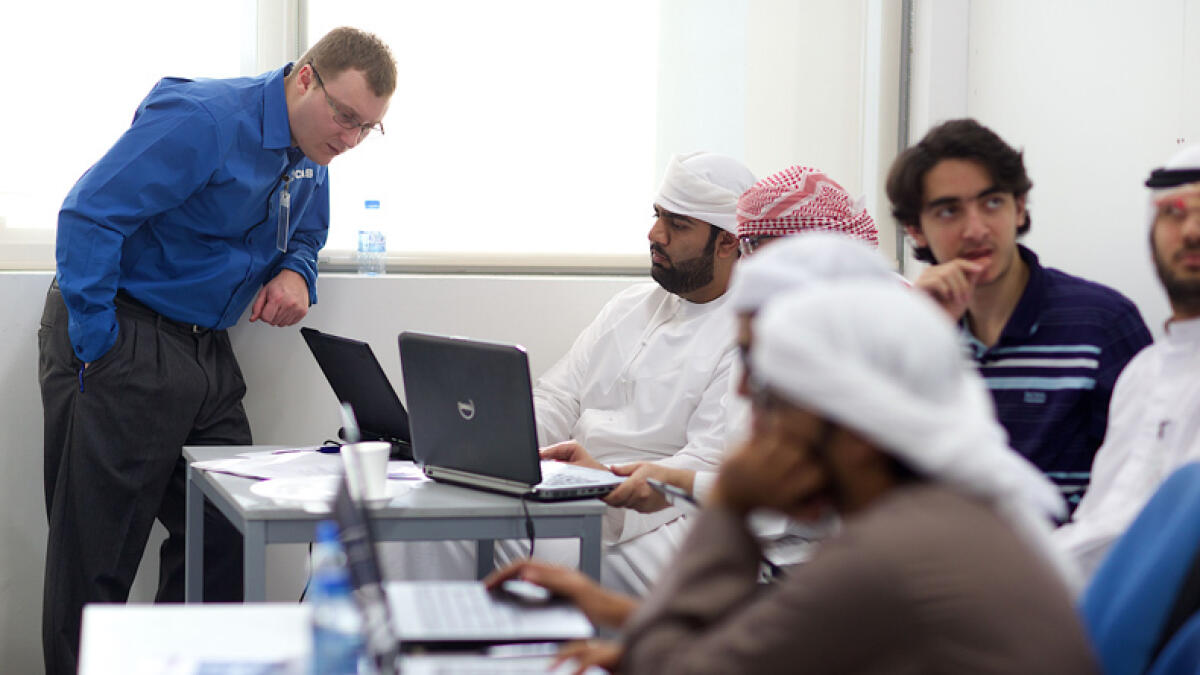Yaser Qudaih, a professor in the electrical engineering department at the Higher Colleges of Technology (HCT), has taken a sabbatical from his teaching career to join the corporate world for hands-on training, similar to student interns. At 52 years old, the UAE resident has returned to being a student as part of a new initiative offered by the HCT, which allows its faculty members a chance to spend approximately one month in a workplace setting. Three weeks into his training programme at Schneider Electric Company, the professor expressed that he is thoroughly enjoying the industry experience and acquiring practical knowledge.
In an interview with Khaleej Times, Yaser Qudaih mentioned that the experience at Schneider Electric enhances his teaching as he is meeting people in the business world and gaining practical knowledge. He believes that individuals should strive to be lifelong learners to remain relevant in their professions. The sabbatical programme aims to bridge the gap between the industry and academia, allowing faculty members to gain insights into the latest experiences, applications, and practical methodologies relevant to their field.
The sabbatical programme is offered by the HCT to upskill its faculty members and can be availed in addition to their annual leave. Dr Faisal Alayyan, HCT President and CEO, highlighted the importance of giving faculty members the opportunity to gain industry experience, which in turn benefits the students. The Chief Academic Officer of HCT, Dr. Luc Verburgh, emphasized the importance of enhancing the professional development of academic staff members and ensuring that they remain updated with the job market needs through the Outbound Industry Sabbatical Leave initiative.
Yaser Qudaih’s experience at Schneider Electric is part of a greater initiative by the HCT to provide faculty members with hands-on experiences in the industry. The programme allows faculty members to engage in experimentation with cutting-edge technologies and market experiences, which can then be leveraged to enhance teaching methodologies and impart practical knowledge to students. This initiative has attracted academic leaders from renowned international universities specialized in applied education, further enhancing the teaching methods at HCT.
The sabbatical programme not only benefits faculty members but also extends its advantages to students, as they now have access to laboratory facilities of certain companies. This collaboration between faculties and industries leads to better employment practices, enhancing the overall development of students and faculty members. By encouraging lifelong learning and fostering a culture of industry-academia partnerships, the HCT sabbatical programme is contributing to a more practical, relevant, and enriched educational experience for everyone involved.











